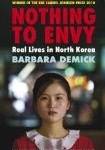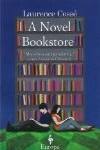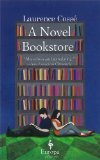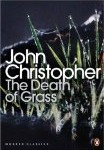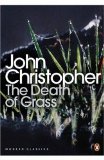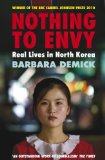 Winner of 2010 BBC Samuel Johnson Prize for Nonfiction
Winner of 2010 BBC Samuel Johnson Prize for Nonfiction
Five words from the blurb: North Korea, repressive, secretive, survival, stories
Nothing to Envy is a frightening insight into the lives of ordinary people in North Korea. By interviewing those who managed to escape the oppressive regime Barbara Demick has created a comprehensive picture of what life is like for those living under the thumb of a powerful dictator.
More than 2 million North Koreans died during a famine in the 1990s, but their plight was made harder by the fact they could trust very few people. Under constant fear of being reported to authorities each individual had to find their own food, often by committing a crime that, if caught, could have lead to their execution.
It isn’t necessary to know anything about the country in advance as this book explains the situation perfectly, without a hint sensationalisation. Details of the slow decline in living standards are mesmerising in their horror and I think everyone should read this book so they can understand what occurs at the limits of humanity.
I have always been fascinated by North Korea and so I expected to love this book from the very first page. Unfortunately I initially felt a bit overwhelmed – so many people were introduced that I found it hard to keep track of them all and I longed for a bit of emotion to be injected into the statistics.
Luckily things improved quickly and by page fifty I was hooked. I began to recognise each person as their story was continued and it was impossible to not be moved by their increasingly difficult lives.
I thought I had a reasonable idea of what went on in the country, but I was shocked by some of the details of their existence.
North Koreans learned to swallow their pride and hold their noses. They picked kernels of undigested corn out of the excrement of farm animals. Shipyard workers developed a technique by which they scraped the bottoms of the cargo holds where food had been stored, then spread the foul smelling gunk on rooftops to dry so that they could collect from it tiny grains of uncooked rice and other edibles.
This book is one of the most important pieces of journalism to be written in recent years and it has just become one my favourite nonfiction titles.

.
The thoughts of other bloggers:
Nothing to Envy is a truly astonishing book. Reading Matters
Readers, even those who don’t often read non-fiction, will find themselves completely absorbed in these stories. Olduvai Reads
The book is fascinating, sad, and frustrating all at the time, which is the best sort of narrative nonfiction. Sophisticated Dorkiness
